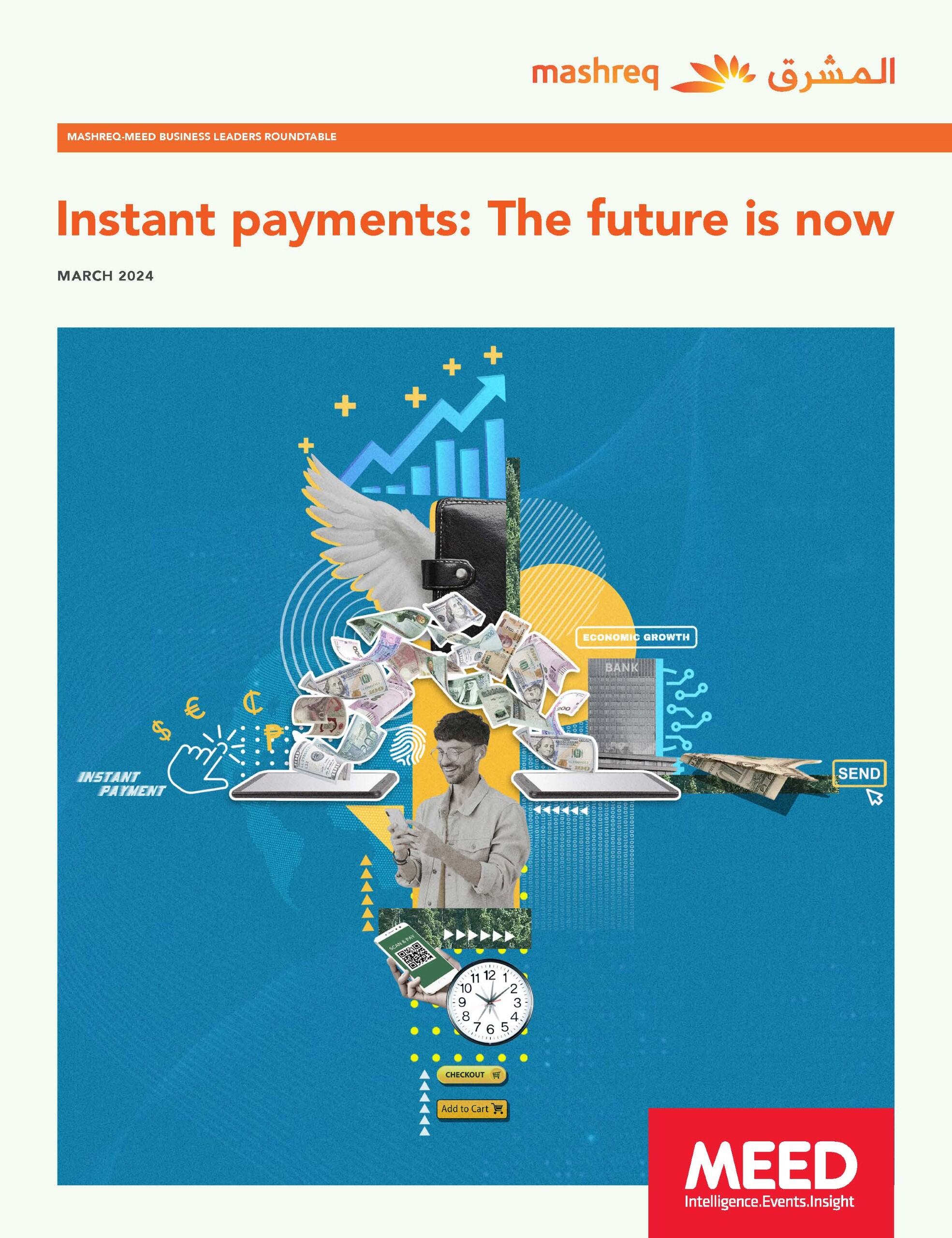Transitioning from manual to digital processes

Innovation, changing consumer preferences and regulatory frameworks are shaping the payments landscape
The digitisation of payments stands as one of the 21st century’s most significant banking sector developments, transforming how businesses and consumers transact.
For years, companies relied on manual payment methods, from physical cash and cheques to promissory notes and paper-initiated wire transfers.
However, with the expansion of global commerce, the limitations of these traditional methods became evident. The need for faster, more reliable payment options drove innovation in financial systems.
It is safe to say that digital transformation has taken over markets one user-friendly interface at a time.
According to McKinsey, around 73% of the world’s interactions with banks take place through digital channels.
To sustain growth, banks must align more closely with the diverse needs of their customers, offering services in the most convenient and accessible ways possible.
In the consumer space, the introduction of credit and debit cards was revolutionary, allowing instant processing of transactions. Mobile based payments have followed over the past decade and are expected to grow substantially in the next five years, although they are unlikely to challenge card payments – which currently dominate cashless retail payments, at least in Western countries – for the foreseeable future.
Instant payments followed suit and are rapidly driving the shift away from cash.
A McKinsey study reveals cash-heavy economies will conduct half of all transactions through instant payments by 2027 – up to three times more than in 2022.
Digital wallets, central to this shift, are also experiencing rapid growth. In countries like Kenya, Ghana and Tanzania, mobile wallet infrastructure is both widespread and interoperable, supporting the expansion of digital payments. In China, the development of instant digital payments was led by wallet-based systems such as WeChat Pay and Alipay. Different regions are developing unique business models to capitalise on these trends.
In the UAE, GlobalData’s 2023 Financial Services Consumer Survey found that 76.1% of respondents reported both owning and actively using a mobile wallet.
As payment systems evolve, transactions become easier and more secure, and there is a reduction in the risks associated with traditional methods.
“These innovations will soon enable instant, multi-bank payments across platforms, transforming how businesses operate,” said Victor Penna, Executive Vice President, Global Head of Global Transaction Banking at Mashreq.
“Mobile wallets and instant payments have brought countless people into the business ecosystem, fuelling the growth of consumer-led industries.
“Payments, once seen as a dull, back-office function, have now become one of the most dynamic and exciting frontiers in today’s e-commerce landscape.”
Penna’s comments came at a Mashreq MEED Exclusive Business Leaders Roundtable in September that brought together experts to discuss best practices and digital transformation, which are driving the development of advanced payment solutions.
Integrated payments
The integration of financial services into non-financial platforms has emerged as one of the most significant developments in digital payments.
These embedded systems allow customers to access financial services directly within other applications – typically observed in e-commerce or ride-hailing apps – making transactions faster and more seamless.
In Asia, the rise of ‘super apps’ such as WeChat and Alipay has transformed how people manage their daily finances, with financial services like payments, loans and insurance all accessible within one digital ecosystem.
India’s mobile-based real-time payment system UPI has been another key development. The system processes over 75% of the country’s retail digital payments and recorded over 14 billion transactions in May 2024 alone.
Another key driver in this fast-evolving landscape is the trend towards open banking and the use of application programming interfaces (APIs), allowing banks to seamlessly connect with businesses, ensuring smooth data and payment transfers.
“The central banks are advancing the open finance agenda alongside instant payments, though it is doing so in a calibrated manner,” said Devendra Kumar, Head of Digital Channels Product at Mashreq. Explaining further, Kumar said, APIs are a code of software that works between different systems and fetches the desired information or data in real time. APIs are the critical enablers to facilitate real-time commerce and instant payment and become a key component of the Open Banking framework. Mashreq has substantially invested in its API stack for corporate clients.
Insights from McKinsey reveal that several large banks are launching API programmes and, on average, allocating 14% of their IT budgets to APIs.
As APIs play an increasingly central role, their applications extend beyond just making payments or fetching real-time account data.
“APIs are also enabling seamless validation of international bank account numbers (IBANs), ensuring that names and other crucial details are accurately confirmed in real time for secure and efficient cross-border transactions,” said Varghese Pylee, director of accounts payable at Dubai Holding.
Earlier this year, Mashreq launched an IBAN API that is integrated with the payment infrastructure of the Central Bank of the UAE (CBUAE). This ensures accurate verification of beneficiary account details in compliance with regulatory standards.
For corporate users, the integration of payment systems with enterprise resource planning (ERP) software has streamlined operations. This allows businesses to make urgent vendor payments in real time while instantly receiving information on collections for outstanding invoices.
Role of Enabling Technologies
According to Abdallah Abu Sheikh, chief executive of the UAE’s calling ‘ultra app’ Botim, artificial intelligence (AI) is projected to have a transformative impact on the domestic economy, contributing up to 14% of the country’s GDP by 2030, equivalent to approximately $100bn.
Today, AI and machine learning (ML) are no longer just buzzwords but are defining the way banks operate.
Once deployed, AI-driven automation is expected to slash operational costs by up to 22%, as reported by Ernst & Young, while also driving personalised customer experiences and more sophisticated fraud prevention methods.
“In corporate banking, AI-powered chatbots are utilising predictive analysis to understand customer behaviours, transaction patterns and business needs – making them one of the most promising tools,” said Kumar.
A study by market research firm Juniper Research shows that by 2026, the success rate of bot interactions in this industry could exceed 90%.
Given their growing applications, Mashreq is aiming for chatbots to seamlessly mimic human interactions, creating a more intuitive banking experience.
In addition to enhancing interactions, AI can alleviate one of the biggest pain points for organisations – account opening – by automating processes like know your client (KYC) and data entry.
“Opening an account is a significant challenge for small and medium enterprises, and AI-driven onboarding can help streamline this process, enabling faster and more efficient service while improving the overall customer experience,” said Vikas Jha, senior executive officer of MeCred (DIFC), a regulated fintech active in B2B Trade and Supply Chain financing.
Meanwhile, ML technologies play an active role in restructuring backend processes in banks, from document scanning to QR-based forms, with many banks already implementing these solutions.
“ML has been a part of credit card fraud detection, identifying patterns and anomalies in user behaviour,” said Penna. “AI also extends to basic geo-location tracking and pattern matching to detect unusual payment or trade behaviours in sanction systems.”
Conversely, technologies like blockchain, although initially hailed as a game-changer, have struggled to scale and have not taken off as anticipated.
“As payment processes became quicker – whether domestic or international – the need for blockchain technology diminished, especially considering its energy consumption and environmental impact,” explained Penna.
While blockchain may persist in some niche areas, its potential as a pervasive solution in banking has not materialised.
Regulatory push
Government intervention plays a crucial role in keeping up with digital advancements.
Their contribution serves as a critical tool to steer market operations, ensuring the alignment of economic outcomes with evolving financial ecosystems.
GCC governments, particularly those of the UAE, Bahrain and Saudi Arabia, have actively implemented initiatives to accelerate digital transformation in their financial sectors.
In February 2023, the CBUAE launched its Financial Infrastructure Transformation (FIT) Programme to promote the use of electronic payments and improve financial inclusion and a cashless payment infrastructure.
The programme consists of nine key initiatives that are set to be fully implemented by 2026.
Aligned with the FIT Programme, one of the key initiatives is the launch of instant payments in the country. In October 2023, central bank subsidiary Al-Etihad Payments introduced the national instant payment platform (IPP), dubbed Aani.
This platform enables consumers, businesses, corporate entities and governments to process transactions instantly and securely, 24/7. Customers can make payments using the recipient’s mobile number, email or a QR code, with a maximum transaction limit of AED50,000 ($13,612). Mashreq was one of the first pioneering bank to open up the API enabled Instant Payment for consumers as well as corporate clients.
Another planned launch under the FIT Programme is the Jaywan card, a domestic debit card scheme implemented in collaboration with NPCI International, the developer of India’s RuPay. Over the next two and a half years, this initiative aims to replace 10 million existing debit cards in the UAE.
Al-Etihad Payments is also working with Magnati, Mashreq Neo Pay and Network International to enable QR-based merchant payments.
Governments can be involved in supporting fraud prevention by encouraging collaboration between financial institutions.
“A centralised fraud detection tool in the UAE trade sector, where banks collaborate to share invoice data, can prevent double financing,” said Penna.
“Integrating these systems with trade licensing databases and clearing systems would address broader information validation issues, enhancing transparency and security for companies.”
Also effective is the collaboration of regulatory authorities to centralise treasury and cash functions, which can help add efficiencies and control.
“Centralising information like IBANs for bank accounts can reduce duplication and streamline processes,” said Jha.
“Government regulation could unify this across sectors, ensuring consistency and efficiency, especially in the GCC, where geography and policy support make it feasible.”
Penna explained how central banks worldwide are working towards enhancing payment traceability by implementing systems that allow for better tracking and monitoring of transactions.
“It also helps central banks mitigate risks like money laundering and other financial crimes,” he said.
Today, regulators in the UAE and the region are advancing beyond APIs and open banking, focusing on open finance and open data, which could lead to a more integrated ecosystem.
“The banking sector plays a critical role as payment facilitators in this evolution,” said Kumar. “The challenge lies in balancing central bank directives with delivering an optimal client experience.”



